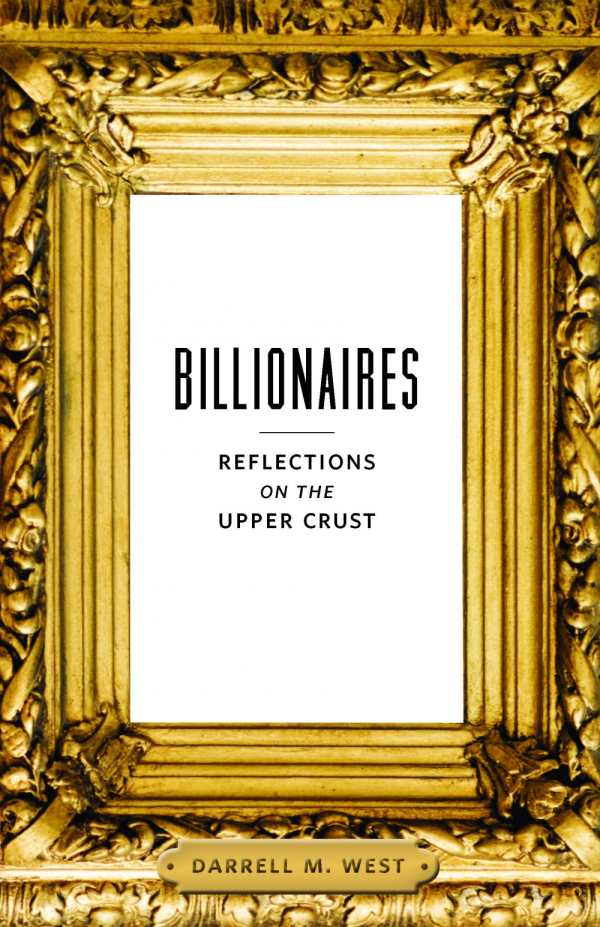Billionaires
Reflections on the Upper Crust
West’s book is the canary in the coal mine, as far as keeping democracy sustainable in the United States.
If the strategy of the super wealthy to “get a senator,” as described by Darrell M. West in Billionaires: Reflections on the Upper Crust, is true and the practice widespread, then representative democracy as practiced in the United States may be an endangered species. West’s most recent book is a fascinating look at the demographics and political views and practices of the wealthiest Americans and other individuals around the globe.
West quickly answers the question of why the political habits of the super rich are important: “It is important to analyze wealth in democratic systems because the super rich, as a group, hold policy views that are significantly different from those of ordinary citizens.” Thus, the “get a senator” strategy described here is no fantasy. With the senate rules that allow one senator to put a hold on legislation or a nomination, the power wielded by billionaires who use their wealth to unduly influence one senator is enormous. Those billionaires can control legislation on any topic that interests them and substantially affect public policy like no other individual or group.
Billionaires is loaded with statistics and freely draws on the findings of numerous other studies conducted by a vast array of researchers. According to Forbes magazine, there are 492 billionaires in the United States and 1,465 known billionaires around the world. The top 1 percent of earners in the US owns approximately one-third of the wealth in the country.
West includes case studies of billionaires in the US and abroad who have attempted to influence public-policy development in various ways, including running for office. He notes that they have not always been successful as candidates, calling to account the campaigns of Meg Whitman for governor in California, and Mitt Romney for president in 2012.
The author is vice president and director of Governance Studies at the Brookings Institution and is the author of several books on US public policy. This rich experience gives West the opportunity not only to study billionaires but to interact with them in the course of his professional career. He uses these experiences to enliven the discussion of the political practices of this small but influential group. Most importantly, West has made a giant contribution to rational political discourse in the US in that he has made reliable research-based information on a sensitive and complex issue.
Reviewed by
John Senger
Disclosure: This article is not an endorsement, but a review. The publisher of this book provided free copies of the book to have their book reviewed by a professional reviewer. No fee was paid by the publisher for this review. Foreword Reviews only recommends books that we love. Foreword Magazine, Inc. is disclosing this in accordance with the Federal Trade Commission’s 16 CFR, Part 255.

